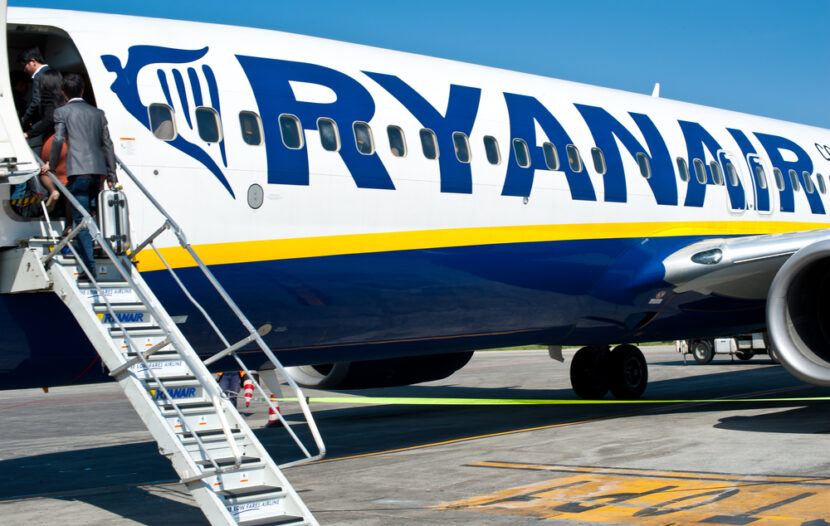DUBLIN, Ireland – Ryanair sharply raised its profit outlook on the back of surprisingly strong first-half profits, sending shares in Europe’s biggest budget airline to a record high.
The airline said Monday that its net profit for the peak April-September period rose 32 per cent to 795 million euros ($994 million), about 100 million euros better than market expectations.
Chief Executive Michael O’Leary said Ryanair would aggressively expand services during the traditionally loss-making, low-demand winter months to attract an extra 2 million passengers, taking the annual total to 89 million, nearly 8 million better than the year before.
And he raised Ryanair’s forecast net profit for the full fiscal year ending March to a range of 750 million to 770 million euros ($938 million to $963 million). The airline previously boosted its profits outlook to 650 million euros only six weeks ago.
Ryanair shares rose 10 per cent to a record 8.36 euros ($10.45). The stock has steadily gained altitude this year as Ryanair introduced new products and service improvements designed to remove many of the inflexible, irritating and punitive elements of its previous no-frills model.
It’s now much less common to see angry customers bickering with staff at check-in desks. Passengers now receive seat assignments for free, can carry two small bags on board without rigorous assessment for weight-violation fees, and can buy pricier business-class tickets that offer a free checked bag, fast-track security clearance and free rescheduling of flights. Its Web site navigation has dramatically improved, and Ryanair has resumed co-operation with travel agents after a decade-long boycott.
On the downside, the airline still features some of the industry’s most cramped seating and no baggage transfers between connecting flights.
“By keeping fares low and being nicer to our customers, more and more are flying with Ryanair,” said O’Leary, who has softened his previously braggadocio, confrontational persona. “It’s a newfound experience, I must admit, for me. But if it works this well, I wish I’d been nicer to our customers much earlier.”
Average fares rose 5 per cent to 54 euros ($67.50) as load factor – the industry measure of seats sold per flight – rose above 90 per cent this summer for the first time.
O’Leary said Ryanair aimed to carry 150 million passengers by 2024, up from his previous target of 120 million. He said continued fast growth would be driven by opening new routes and hubs using up to 380 new Boeing aircraft already ordered for delivery over the coming decade.
Ryanair, founded in 1985 when it operated a single Ireland-England route, today connects 30 countries across Europe and Morocco and is mulling an eastward expansion into the Middle East and Russia.
